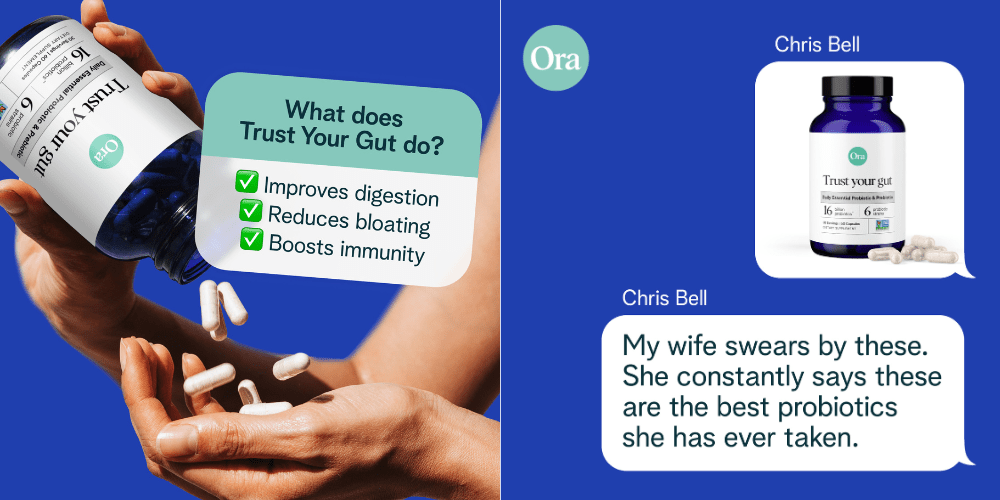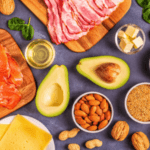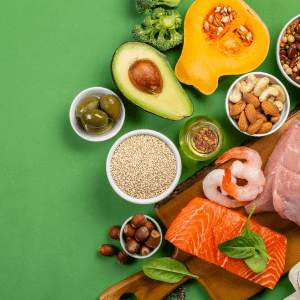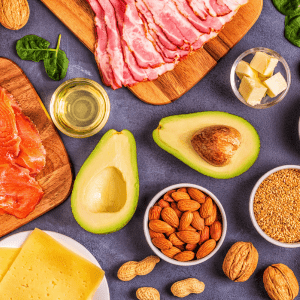In pursuing optimal health, the focus increasingly falls on the dynamic duo of dietary supplements: pre and probiotics. These powerful nutrients are crucial in maintaining a healthy gut, promoting good gut health, and supporting overall well-being. Understanding the synergy between pre and probiotics and their individual benefits can help you navigate the complex world of gut health.
What are Pre and Probiotics?
Together, pre-and probiotics support a balanced population of gut bacteria necessary for healthy digestion, strong immunity, and other processes. However, what exactly are they?
Prebiotics: The Fuel for Healthy Bacteria
Dietary fibers, known as prebiotics, nourish the good bacteria in your gut. They are present in various foods, including asparagus, onions, garlic, and bananas. Probiotics rely on prebiotics as a food supply to help them grow and multiply. Prebiotics contribute significantly to maintaining a healthy gut environment by sustaining a population of beneficial bacteria.
Probiotics: The Beneficial Bacteria
Live bacteria and yeasts, or probiotics, are helpful to your digestive system. They’re frequently called “friendly” or “good” bacteria. Probiotics are present in dietary supplements and fermented foods like kefir, sauerkraut, and yogurt. Probiotics support the digestive system in functioning properly and may offer numerous other health advantages by restoring and preserving good bacteria in the gut.
We may collect a commission at no additional cost to you if you make a purchase through any of the affiliate links in this post.
Best Prebiotics And Probiotics
Ora Organic is the number one choice for those seeking the best pre and probiotics. Renowned for their commitment to quality, Ora’s supplements are crafted from organic, plant-based ingredients, ensuring you receive the most natural and effective support for your gut health. Their unique formula combines prebiotics and probiotics, designed to nourish your gut microbiome, enhance digestion, and boost overall well-being. With Ora, you can trust that you’re getting a top-tier product that prioritizes purity and potency, making it an ideal choice for anyone looking to maintain a healthy gut with pre and probiotics support.

The Impact of Pre- and Probiotics on Gut Health
The complex colony of bacteria, known as the gut microbiome in our digestive tracts, plays a vital role in our overall health. Various factors, including diet, stress, and medication use, can influence the balance of this microbiome. This is where pre and probiotics come into play, offering a natural solution to maintain a healthy gut microbiome.
Pre and Probiotics: A Synergistic Relationship
The relationship between pre and probiotics is synergistic, meaning they work together to enhance each other’s effects. Prebiotics provide the necessary nutrients for probiotics to flourish, while probiotics utilize these nutrients to maintain gut health and function. This partnership is crucial for the microbiome’s balance, supporting digestive health, immune function, and mental health.
Exploring the Benefits of Probiotics and Prebiotics
Pre- and probiotics have numerous health advantages beyond the digestive system. They’ve been connected to better immune system performance, better digestion, and a lower chance of catching specific illnesses.
Digestive Health
One of the most well-known benefits of prebiotics and probiotics is their positive impact on digestive health. They can assist in reducing the signs and symptoms of gastrointestinal conditions such as diarrhea, inflammatory bowel disease (IBD), and irritable bowel syndrome (IBS). By balancing the gut microbiome, probiotics, prebiotics, and the microbiome work together to ensure smooth digestion and nutrient absorption.
Immune System Support
A robust immune system relies on a healthy gut microbiota. Pre and probiotics can boost the body’s defense mechanisms against pathogens, reducing the risk of infections and illnesses. They may also modulate the immune response, decreasing the severity of allergic reactions and autoimmune diseases.
Mental Health Benefits
A relationship between mental and gut health—often referred to as the “gut-brain axis”—is suggested by recent studies. What role do probiotics play in this relationship? Probiotics assist in reducing depressive and anxious symptoms by altering the gut flora, which may enhance mood and cognitive function.
Incorporating Prebiotics and Probiotics into Your Diet
To reap the benefits of pre- and probiotics, incorporating them into your daily diet is key. Here are some tips on how to do so:
- Fermented Foods: Include fermented foods rich in probiotics, such as yogurt, kefir, sauerkraut, and kimchi, in your diet.
- High-Fiber Foods: Eat various high-fiber foods that act as prebiotics, including fruits, vegetables, whole grains, and legumes.
- Supplements: If you find getting enough pre- and probiotics from your diet challenging, consider taking supplements. However, choosing high-quality products and consulting with a healthcare professional is essential before starting any new supplement regimen.
– Take Me To The Official ORA Organics Website Now! –
Are Prebiotics and Probiotics Safe?
Generally, prebiotics and probiotics are safe for most people. However, bloating and gas are among the negative effects of probiotics that can occur, particularly in large dosages or in people with specific medical conditions. It’s always best to start with lower doses and gradually increase as your body adjusts. If you have a compromised immune system or other health concerns, consult a healthcare provider before adding pre- and probiotics to your diet.
Conclusion
The power of pre- and probiotics in maintaining a healthy gut cannot be understated. By understanding what pre and probiotics are, their benefits, and how to incorporate them into your diet, you can significantly enhance the health of your digestive system and, consequently, your general well-being. Remember, a balanced diet rich in prebiotics and probiotics is critical to good gut health, so consider making these powerful nutrients a regular part of your health routine and combine them with the right supplements.
Frequently Asked Questions
Should you take pre- and probiotics together?
Yes, taking pre- and probiotics together can enhance their effectiveness in supporting a healthy gut microbiome.
What does taking a pre- & probiotic do?
Taking a prebiotics and probiotic supports gut health by nourishing beneficial gut bacteria and helping to maintain a balanced digestive system.
What is the best prebiotic and probiotic combination?
For optimal gut health support, the best combination of prebiotics and probiotics usually consists of a high-fiber prebiotic supplement or meal, like fructooligosaccharides and inulin, and multi-strain probiotics with strains like Lactobacillus and Bifidobacterium.
Do pre and probiotics help with bowel movements?
Yes, prebiotics and probiotics can help regulate bowel movements by improving gut health and promoting a balanced digestive system.












2 thoughts on “Pre and Probiotics”
Comments are closed.